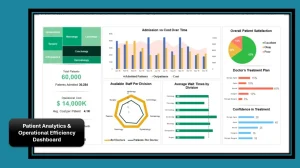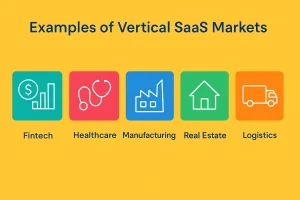
When you hear “blockchain,” your mind probably jumps to cryptocurrencies and wild price swings. Right? It’s an understandable connection. But here’s the deal: the real, ground-level revolution of blockchain technology is happening far away from the trading floors. It’s starting to reshape something much more mundane, yet utterly vital: small business accounting.
Think of your current accounting system. It’s likely a digital version of a paper ledger—a central record that you, and only you, truly control and update. Now, imagine a shared ledger, a kind of communal spreadsheet that everyone in your transaction chain can see and trust, but no single person can alter on a whim. That’s the core promise of blockchain for accounting. It’s not just an upgrade; it’s a fundamental shift from keeping your own books to participating in a shared, unchangeable source of financial truth.
So, What Exactly Is This “Shared Ledger” Anyway?
Let’s ditch the tech-jargon for a second. Picture a Google Doc, but one where every single change is permanently recorded, time-stamped, and locked down with a unique cryptographic seal. If you try to go back and change an entry from last Tuesday, it would break the seal. Everyone with access would know immediately. That’s blockchain in a nutshell—a decentralized, tamper-evident record of transactions.
This creates a level of transparency and security that traditional systems simply can’t match. For a small business owner drowning in invoices, receipts, and the constant fear of human error, this isn’t just a nice-to-have. It’s a potential lifesaver.
The Real-World Perks: Where Blockchain Hits Your Bottom Line
Okay, the theory sounds cool. But what does it actually do for you on a Tuesday afternoon? Well, let’s dive into the practical applications.
1. The End of the Invoice Chase
Honestly, how much time do you waste sending invoice reminders or hunting down payment statuses? With a blockchain-based system, an invoice isn’t just a PDF you email. It becomes a “smart contract.”
This is a game-changer. A smart contract automatically executes the terms of an agreement when conditions are met. So, the moment your client receives the goods (verified by a tracking scan), the payment is automatically released from their digital wallet to yours. No more 30, 60, 90-day payment terms. The cash flow just… flows.
2. An Audit Trail You Can Actually Trust
The mere word “audit” can send a shiver down any business owner’s spine. The process is notoriously painful because you’re essentially proving your records are accurate. But with a blockchain accounting system, every transaction is cryptographically linked to the one before and after it.
This creates an immutable audit trail. An auditor—or your accountant—could verify your entire financial history in minutes, not days. The trust is built directly into the system, saving you countless hours and a significant amount of stress. It’s like having a notary public witness every single financial entry you make.
3. Crystal-Clear Supply Chain Costs
If your business deals with physical products, tracking true costs can be a nightmare. You have raw materials, shipping, manufacturing, and more, each with their own paperwork. Blockchain allows for seamless supply chain finance tracking.
Every component, every shipment, can be logged on the chain. This gives you an incredibly precise, real-time view of your Cost of Goods Sold (COGS). You can pinpoint inefficiencies, verify the authenticity of materials, and ultimately, protect your profit margins in a way that was previously impossible.
Blockchain in Action: A Simple Snapshot
Let’s make this concrete. Here’s a simplified look at how a blockchain transaction for a small business sale differs from the old way.
| Action | Traditional Accounting | Blockchain-Based Accounting |
| You sell a service | Create an invoice in your software. Email it. | Create a smart contract invoice on the blockchain. |
| Client receives invoice | It sits in their inbox. You hope they process it. | The smart contract is pending, visible to both parties. |
| Client approves payment | They manually issue a payment via bank transfer. | They authorize the smart contract, which holds the funds. |
| Service is delivered | You send a confirmation email. Maybe. | Delivery is confirmed (e.g., via a digital signature). |
| Payment is finalized | Funds take 1-3 business days to arrive in your bank. | The smart contract instantly and automatically releases payment. |
| Record keeping | You mark the invoice as paid. The record exists only in your separate systems. | A permanent, unchangeable record is added to the shared ledger for both you and the client. |
But It’s Not All Smooth Sailing… Yet
Now, for a dose of reality. Blockchain for small business accounting is still, you know, emerging. It’s not a plug-and-play solution for everyone tomorrow. The main hurdles?
Adoption is key. The system’s power multiplies when your suppliers, clients, and bank are all on the same network. We’re not there yet.
Regulatory gray areas. Governments are still figuring out how to treat these transactions for tax and compliance purposes.
A learning curve. It requires a shift in mindset from owning your data to sharing a trusted, distributed ledger.
That said, the direction is clear. The technology is maturing fast, and forward-thinking accounting software providers are already baking blockchain principles into their platforms.
The Bottom Line for Your Business
You don’t need to run out and become a blockchain expert. But you should start seeing it for what it is: the future backbone of transparent, efficient, and automated business. It’s the answer to the endless paperwork, the payment delays, and the audit anxieties that have plagued small businesses for decades.
In the end, blockchain accounting isn’t really about the technology. It’s about what that technology gives you back: your time, your peace of mind, and a firmer grip on the financial truth of your business. And that’s a ledger entry worth making.








